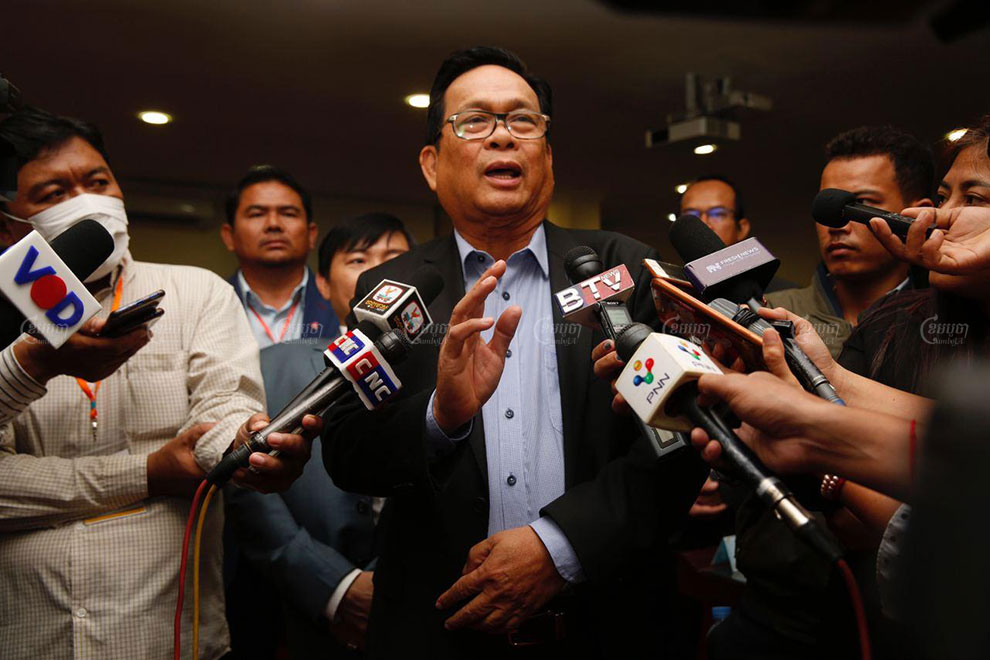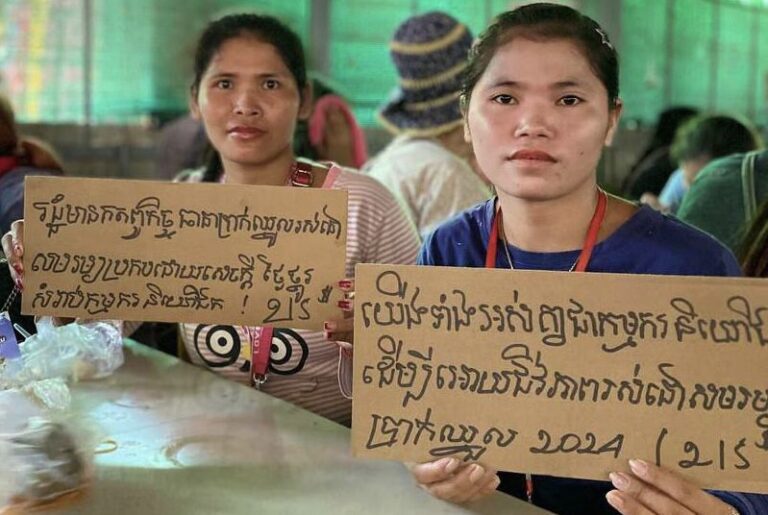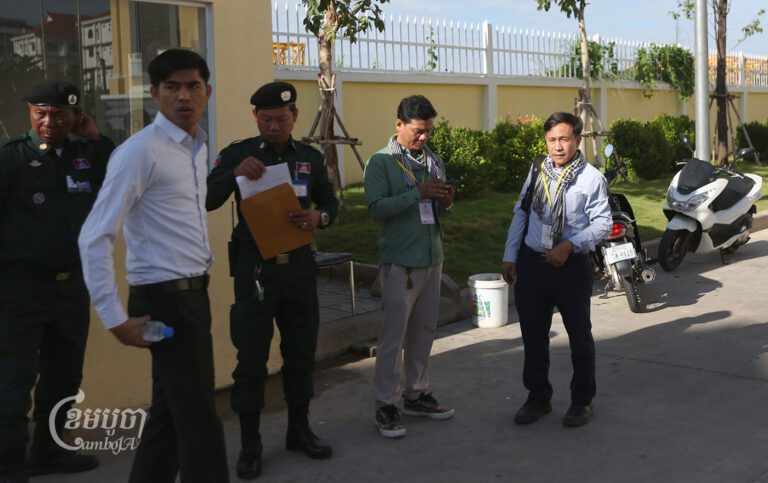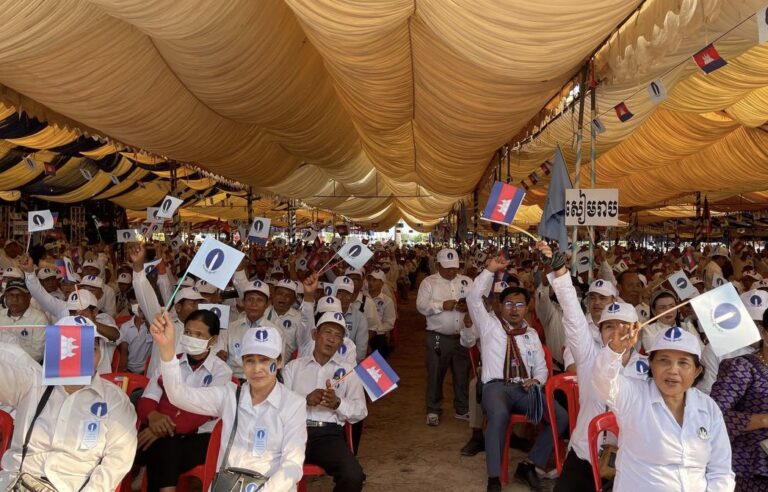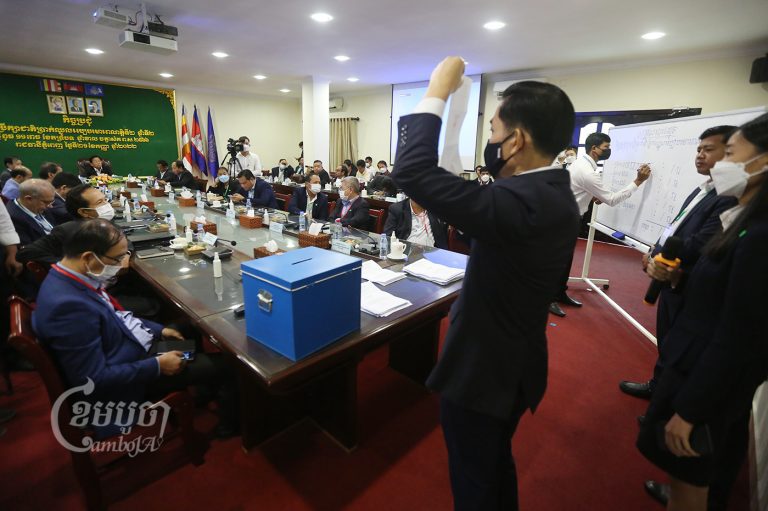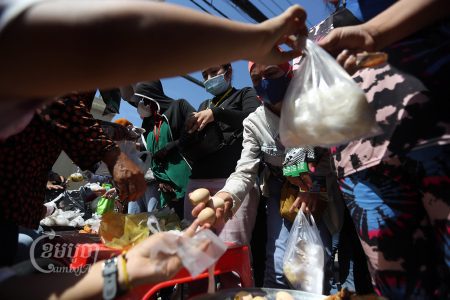The government decided to increase the minimum wage for garment and footwear industry workers by $2 to $192 per month for 2021, a decision that has left unions and employers dissatisfied after the two parties failed to come to an agreement in talks that ended September 10.
The National Council on Minimum Wage (NCMW) approved a $190 minimum wage for 2021, marking no increase over 2020, following sensitive negotiations in which unions requested a raise of nearly $12, and employers asked for a cut of $17. The government then decided to add a $2 raise, which will take effect on January 1.
This year’s minimum wage increase is the smallest since the wage went unchanged from 2010 to 2013. In last year’s negotiations, the NCMW settled on an $8 raise.
Previous three-party talks were held on September 3 and 9 between the members of the NCMW, which is composed of 17 representatives each from the Garment Manufacturers’ Association in Cambodia (GMAC), unions, and the Labor Ministry.
Labor Minister Ith Samheng told reporters that the tripartite negotiations had resulted in a unanimous agreement on $190 as the monthly minimum wage for 2021, taking into consideration the economic strain the global Covid-19 pandemic has placed on the industry, with production materials in short supply and orders dropping significantly.
“I have weighed the gaps between the two parties, and I chose the middle ground, selecting a figure of $190, which was met with unanimous approval,” Samheng said.
He added that there were different figures put forth by employers and unions during the negotiations, and after agreeing that they would not be able to reach a compromise, the union and factory parties agreed to leave the decision to the labor minister.
Samheng said he then reported his suggested minimum wage of $190 to Prime Minister Hun Sen, who decided to add $2, which was in turn approved by the NCMW.
“It is difficult, but this was positive progress even if it is only a small raise,” he said, adding that the three parties displayed tolerance and understanding throughout the negotiations.
Currently, about 100 to 150 factories are suspended, Samheng said, leaving 40,000 to 50,000 workers out of work each day.
“I would like to verify that just because a factory has been suspended does not mean it is closed, and some factories have just suspended some parts of their production,” he explained.
He also said that exports had also declined between 10 to 15 percent so far this year.
“Exports are not strong like before, but it is not bad as far as the situation in Cambodia,” Samheng said.
When asked if cuts to the European Union’s “Everything But Arms” tariff-free trade scheme had affected the decision not to increase the minimum wage, the labor minister said: “The EBA is not a problem because Covid-19 is having such a widespread effect [on the industry].”
The minimum wage affects about 800,000 workers from more than 1,000 factories in the textile, garment, and footwear industries.
Union leaders held an internal meeting on August 28 to choose their desired minimum wage raise, agreeing on $11.59, which is similar to their requests made in previous years and amounts to a 6.1 percent raise. An employer representative had said after the first tripartite meeting on September 3 that the party would wait until the final day to put forth its suggested figure.
Nang Sothy, vice president of the Cambodian Federation of Employers and Business Associations, who attended the meeting, said that reaching a consensus on the wage had been a challenge.
“It is difficult for employers, but in the spirit of supporting each other under the leadership of the Prime Minister [Hun Sen] and to show solidarity amid the Covid-19 crisis, we recognized that employers, employees and the government are all in the same situation,” he said after the meeting.
However, he added that employers may continue to struggle in 2021.
“It has also been difficult [to attract investors] and we are not seeing any large-scale investments due to Covid-19,” Sothy said.
Ath Thorn, president of the Cambodian Labour Confederation, said he was disappointed by the $2 increase.
“We are not satisfied with this figure of $192 for workers,” he said. “The figure is very small but based on the situation like this, we have found it difficult to make our demands.”
This year was an especially difficult situation to negotiate the minimum wage because of the combination of the Covid-19 crisis and the cuts to the EBA, he said. The reduction in the tariff scheme affects 20 percent of Cambodia’s garment and footwear exports to the EU, worth nearly $1.2 billion annually, according to the European Commission.
“When we started the negotiations, we had requested $12 but the employers had asked for a deduction of $17,” Thorn said.
Thorn added that the ministry had said the EBA reduction has not yet had a damaging effect on the garment industry, but said the ministry had encouraged factory representatives at the meeting to produce goods that will not be affected by the taxes.
Eng Luy, 41, an employee and union leader at Estext Factory in Phnom Penh who also attended the negotiations, said the $2 dollar increase is “very small,” and won’t help improve workers livelihoods, especially for those who are suffering the most due to factory closures and suspensions.
“We agreed with the current wage because it’s lucky that it wasn’t deducted as employers had requested,” she said, adding that employer representatives had recommended that workers’ salaries be reduced by 20 percent.
“Actually, workers are not satisfied but we have to understand the current situation,” she said.
In order for workers to better their lives, she said $250 to $300 would be a reasonable monthly wage.
Another garment worker, Chheng Heng, who is employed at Top Silver Factory in Prey Veng province, echoed Ly’s concern that the raise was too small and would not help her afford basic necessities.
“Right now, food is expensive, and we have to pay rental fees and electricity,” she explained.
Ken Loo, secretary-general of GMAC, declined to comment when he was approached outside the Labor Ministry after the meeting. The association’s deputy secretary-general, Kaing Monika, could not be reached.


